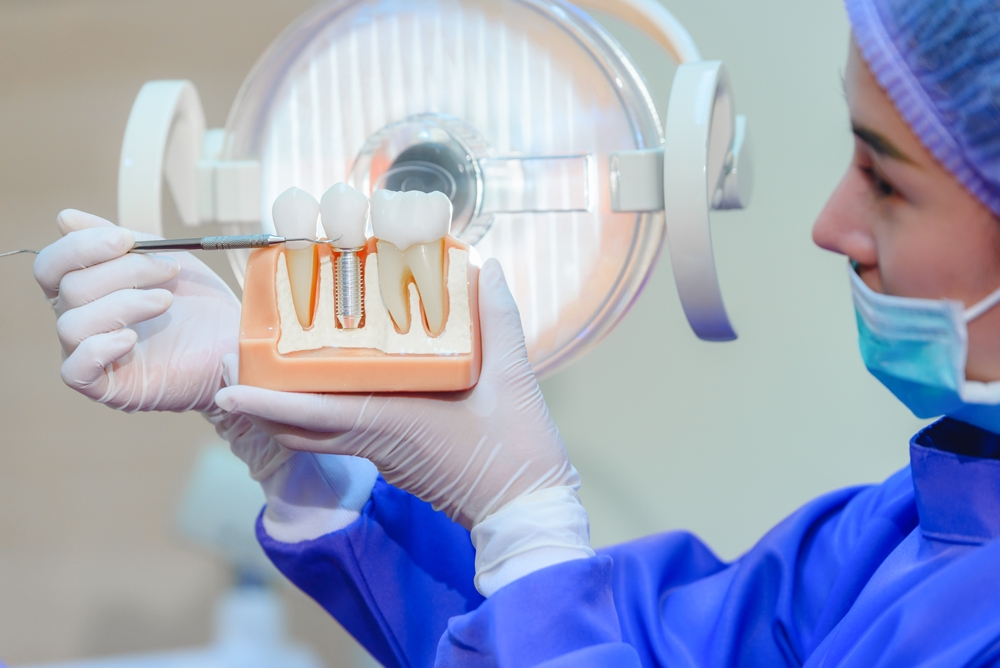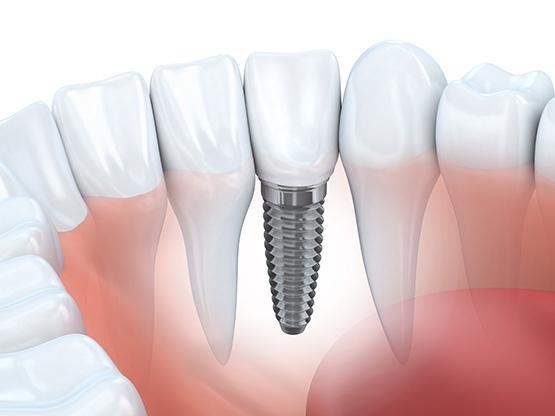
A POPULAR CHOICE
Dental implants are a popular choice nowadays to replace a single missing tooth, or multiple missing teeth. The implant consists of an artificial tooth root (the fixture), that an oral surgeon or periodontist (gum specialist), places into your jaw to hold a replacement tooth or a bridge. The crown (visible part of the tooth), either a single crown or multiple teeth (a bridge), is then retained within the implant fixture.
Unlike dentures, dental implants are non-removable replacements for natural teeth. They are perhaps more rigid than natural teeth, but are the closest to a natural tooth in terms of feel and looks, compared to other treatments.
Dental implants closely mimic the look of the natural tooth and emerge harmoniously from the gum line. As such, they provide a durable and long-lasting solution, and far surpass dentures as the ideal option for the replacement of missing teeth.
COMMON COMPLICATIONS WITH DENTAL IMPLANTS?
Dental implants are not susceptible to decay like natural teeth, but the gums or soft tissue supporting the implant, may suffer from gum disease; also known as “peri-implantitis”.
Patients will usually complain of inflamed gums, swollen red gums, bad breath or bad taste in the mouth and bleeding with brushing or flossing. Occasionally some patients may also experience pain, depending on the severity of the gum infection.
Best course of treatment involves assessing the cause of the infection and work to resolve the issue. It can include cleaning the dental implants, oral medication, or referral to the periodontist for management.
This complication is more common in patients who may have had existing gum disease, smokers, or suffers from poorly-managed diabetes. This in no way excludes these patients from being suitable candidates for dental implants, but excellent, meticulous oral hygiene is essential, in giving the dental implants the best chance of success.
Other complications centre around the crown itself. Patients may complain of chipping of the porcelain of the dental crown, loosening of the screw that holds the crown onto the implant, or fracture of the crown-implant screw. Here at this practice, we minimise the risk of these types of complications by ensuring we work with higher quality implants and high-standard laboratories.
“The decision for a missing tooth replacement with a dental implant is not always straightforward. A holistic, patient-by-patient approach is adopted here to ensure that we assess your individual needs and ensure the best chance of success for your dental implants.”


